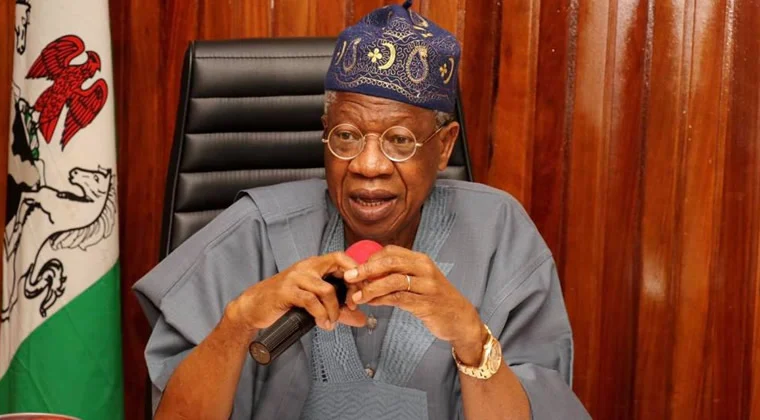Former Minister of Information and Culture Lai Mohammed has praised Nigeria’s creative industry, calling it a “goldmine” and a “fast-growing” sector.
He highlighted the industry’s vast potential for business opportunities, employment, earnings, and entertainment, noting its impressive growth trajectory and significant contributions to the nation’s economy.
He further stated that the country’s creative industry is contributing immensely to its Gross Domestic Product (GDP).
The former Minister, who stated this at a forum tagged “Giessen Meets The World” organised by the IHK Giessen-Friedberg Chambers of Commerce and Industry in Germany, on Thursday, highlighted that Nigeria’s creative sector spans 24 diverse segments, including fashion, music, film, literature, visual arts, among others.
Mohammed, who is the Managing Partner of Bruit Costaud, a policy advisory firm, cited research from Jobberman, noting that the creative sector is Nigeria’s second-largest employer, with the potential to create an additional 2.7 million jobs by 2025.
He elaborated on the sector’s expansive value chain, which encompasses production, distribution, and marketing, thereby supporting diverse employment opportunities.
“The creative sector serves as a powerful engine for economic growth, contributing substantially to Nigeria’s GDP through the production and distribution of creative goods and services,” Mohammed said.
He emphasized how the industry’s value chain creates numerous job opportunities, ranging from artists and performers to technicians, marketers, and administrative personnel.
Mohammed also spoke on the profound digital transformation within the industry, saying: “The rise of online platforms, streaming services, and digital distribution channels has democratized content creation and distribution, making Nollywood films, music, fashion shows, and art exhibitions accessible to a global audience.”
He highlighted the increasing prevalence of global collaborations and cross-cultural influences, which have expanded the global footprint of Nigerian content.
“International collaborations in music, film productions, and fashion events have elevated the industry’s global standing,” he noted.
Speaking further, he cited state-of-the-art film studios, cutting-edge recording facilities, and digital art spaces as key developments that have enhanced production quality and fostered innovation.
He pointed to Nigeria’s youthful demography, with about 70% of the population being young people, as a driving force behind the industry’s growth.
“The youth’s engagement with and consumption of creative content continue to drive the industry’s growth,” Mohammed said.
He pointed out that the sector’s viability and rapid growth are evidenced by high sales records, such as the 2023 success of the film “The Tribe Called Judah,” which according to him, grossed over 1 billion naira in less than three months.
Mohammed attributed this success to supportive government policies and reforms, including grants, tax incentives, and the establishment of creative hubs that encourage entrepreneurship and investment.
Mohammed outlined several lucrative investment opportunities within the Nigerian creative industry, saying: “Nollywood, the world’s second-largest film industry by output, presents opportunities in film production, distribution, and infrastructure development. Public-Private Partnerships can address the industry’s infrastructure needs.
“With the globalization of music consumption and digital platforms, the Nigerian music scene offers investment prospects in production, distribution, and live events.
“The Nigerian fashion industry is ripe for investment in design, manufacturing, retail, and global export, especially with the growing international focus on African fashion.”
